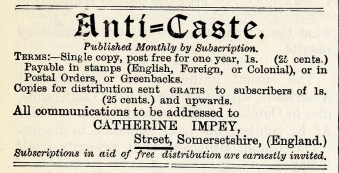Ida B. Wells: Primary & Secondary Sources
During the time of her crusade, another pioneering force was making his way into the fight. Frederick Douglass was a writer, orator and abolitionist who wrote a letter to Wells about her brave fight against racism. Wells' press coverage often "paralleled that of Frederick Douglass" according to Gwenyth Mellinger, in a review she did called, Political Pioneer of the Press: Ida B. Wells-Barnett
and Her Transnational Crusade for Social Justice.
Mellinger even points out that following her years of activism, Wells became "a nonentity" (p. 253).
Most of her coverage can be found after her death. The New York Times published an episode of their series "The Daily: Women We Overlooked," a podcast that focuses on women in history who are often left out or forgotten. For one episode, they discussed Ida B. Wells and how she never received an obituary, even after they published an article about her marriage.
She was often scrutinized by her fellow peers. So Wells being excluded from history has been related back to her relationship with the NAACP. According to Paula Giddings, author of Missing in Action: Ida B. Wells, the NAACP, and the Historical Record, fellow activists saw Wells as having a "difficult personality" and a "need to dominate" (p. 2). As a black woman during this time, in this field, people would portray her in a negative light.
Ida B. Wells also wasn't portrayed appropriately regarding her feminine features. The Cleveland Gazette wrote out an apology to Wells after a woodcut engraving exhibited "Negroid features" (Miss Ida B. Wells and Memphis Lynching, Tucker, p. 112). Other newspapers continued this negative portrayal. The Indianapolis Freeman wrote that the engraving "flattered her" and went on to say that Wells was trying to "be pretty as well as smart. She should remember that beauty and genius are not always companions" (Tucker, p. 113).
However, Wells did receive some praise. During her early years as a teacher, Wells won a court case after suing the train company for being forced to leave a train. She wrote about her experience and it was published in a local Black newspaper in Memphis, TN. Wells received so much praise for that article, she continued to write for the "Negro Press" (Tucker, p. 113).
 |
| Anti-Caste newspaper |
Wells is known to travel out of the country to raise awareness for the racism occurring in America. Catherine Impey, the editor of Anti-Caste in Aberdeen, Scotland invited Wells to come assist in creating an anti-slavery organization. After hearing her speak, the Manchester Guardian spoke of her highly, writing that the way she carries herself and the way that she speaks, "makes her a powerful and convincing advocate" (Tucker, p. 119).
And despite all of her negative portrayals, she persisted.
Cited Sources:
Giddings, P. (2001). Missing in Action Ida B. Wells, the NAACP, and the Historical Record. Meridians, 1(2),
1-17.
M. B. (2018, March 16). Listen to 'The Daily': Women We Overlooked. The New York Times.
Mellinger, G. (2019). Political Pioneer of the Press: Ida B. Wells-Barnett and Her Transnational Crusade for Social Justice. American Journalism, 36(2), 252–254.
Tucker, D. (1971). Miss Ida B. Wells and Memphis Lynching. Phylon (1960-), 32(2), 112-122.


Comments
Post a Comment